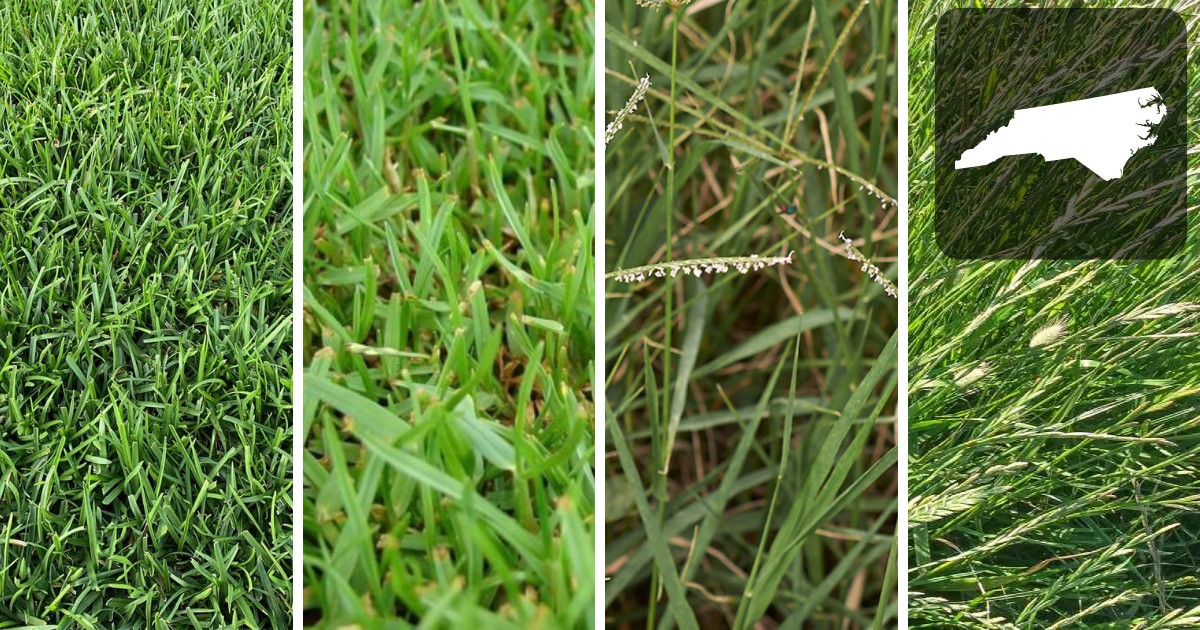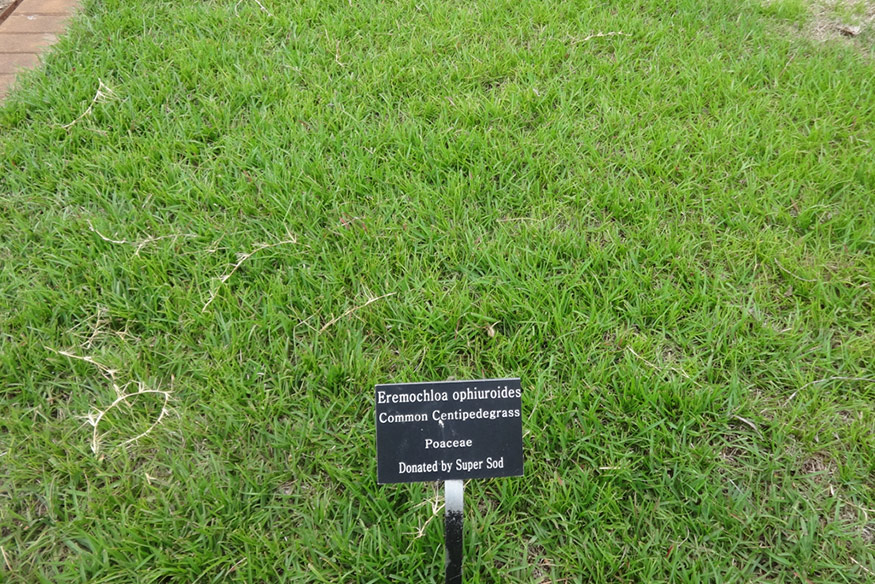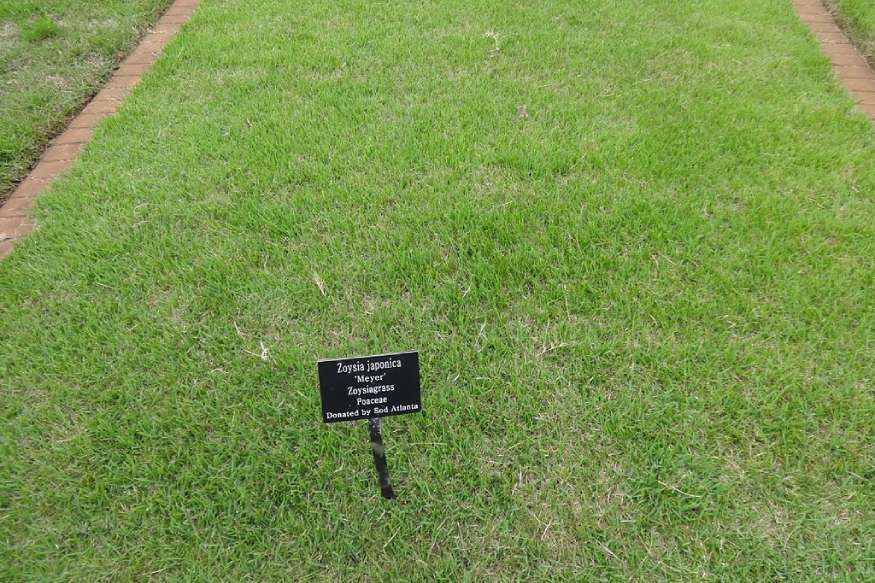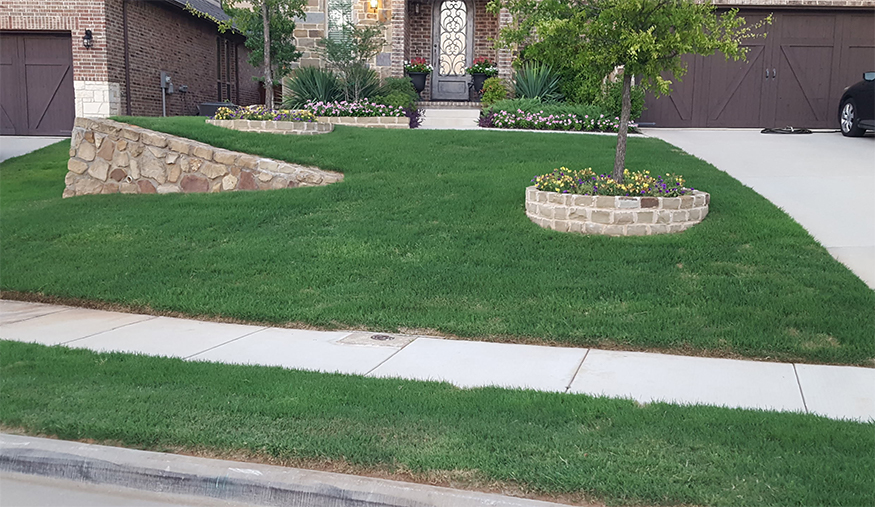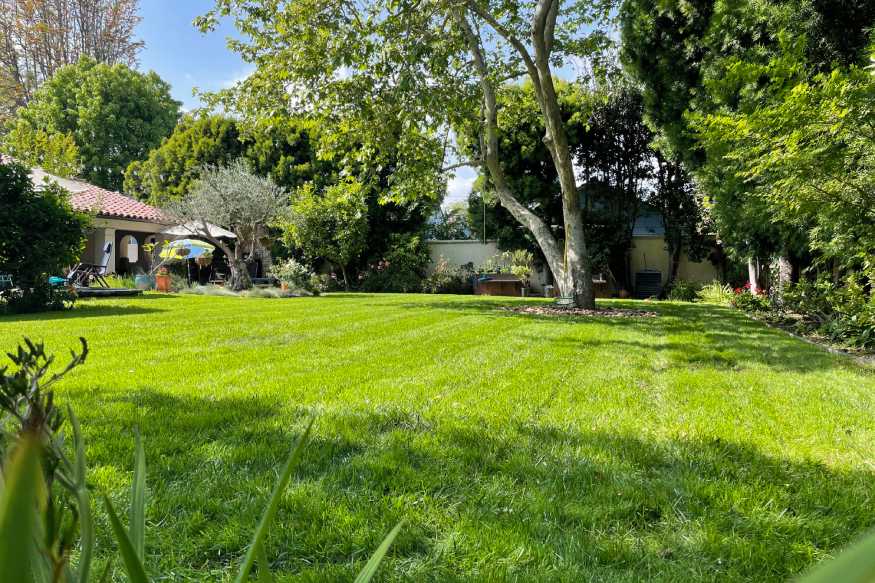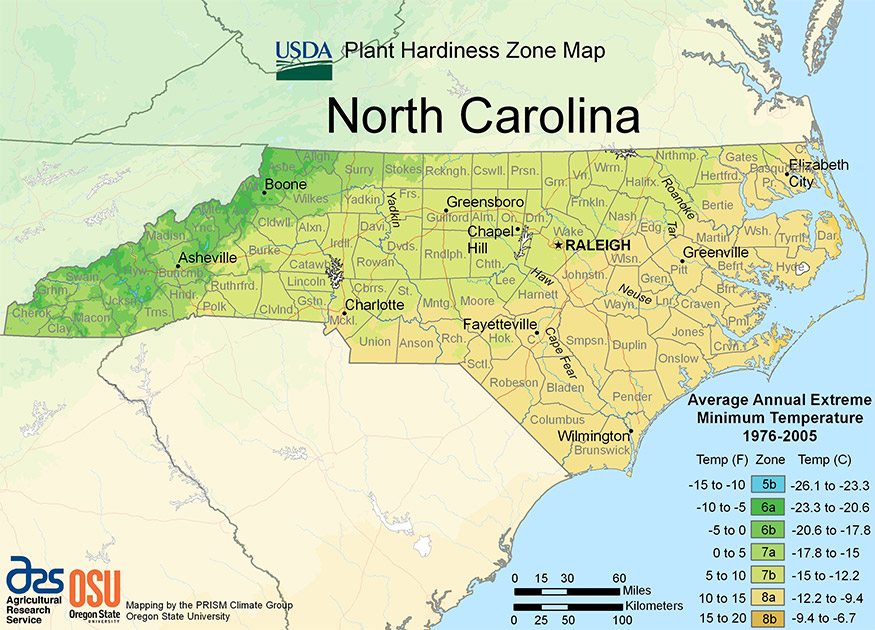If you’re looking to plant a new lawn in North Carolina, you might be wondering which type of grass is the best fit for your area. The quick answer is that Centipede grass is a fantastic choice, but there are several other grass types that might also work well for your lawn.
However, growing a lush green lawn in North Carolina comes with its own set of challenges, such as extreme weather conditions, soil quality, and pest problems.
Read on to find out which grass types thrive in North Carolina’s climate, soil, and topography.
Centipedegrass
| Also Known As | Lazy man’s grass; Eremochloa ophiuroides |
| Type of Grass | Warm season perennial |
| Optimal Zones | 7 – 10, South Eastern US; Hawaii |
| Root Structure | Shallow |
| Winter hardiness | Very poor |
| Heat tolerance | Excellent |
| Shade tolerance | Fair |
| Water Requirements | Moderate to High |
| Drought Tolerance | Moderate to High |
| Self Repair Capacity | Poor |
| Overall Maintenance Requirements | Low |
Why Centipede Grass is a great choice for NC
When it comes to choosing a grass type for your lawn in North Carolina, Centipedegrass is an excellent option to consider. This slow-growing, coarsely leaved turfgrass requires little maintenance once established, including infrequent mowing and low fertilizer needs of 0.5 to 1 pound of nitrogen per 1,000 sq ft per year. It grows best in acidic soil with a pH between 4.5 and 6.0, making it a great fit for many parts of North Carolina.
Despite its many benefits, Centipedegrass does have some limitations to keep in mind. It does not tolerate traffic or compaction and is not as resilient as other grasses when recovering from damage. It’s also sensitive to many commonly used herbicides, so care must be taken when treating weeds in the lawn. Additionally, Centipedegrass can become thatchy if mowed high or frequently fertilized, requiring periodic removal of thatch to prevent bare spots.
For homeowners in North Carolina, TifBlair is a cultivar of Centipedegrass that’s worth considering. This improved variety from the University of Georgia is quicker to establish and more cold-tolerant than common Centipedegrass, making it a great choice for North Carolina’s changing weather patterns. It also retains its green color later into the fall than other types of Centipedegrass. While Centipedegrass may take a bit longer to establish, its many benefits make it a fantastic choice for homeowners looking for a low-maintenance lawn option.
Zoysiagrass
| Also Known As | Zoysiagrass; Zoysia sp. |
| Type of Grass | Warm season perennial |
| Optimal Zones | Southern through warmer transition zones |
| Root Structure | Shallow to medium |
| Winter hardiness | Good |
| Heat tolerance | Excellent |
| Shade tolerance | Partial |
| Water Requirements | Medium |
| Drought Tolerance | Good |
| Self Repair Capacity | Low |
| Overall Maintenance Requirements | Moderate |
Why Zoysiagrass grows well in north carolina
Zoysiagrass is a popular lawn choice in North Carolina due to its many desirable characteristics. One of the biggest advantages of zoysiagrass is its ability to produce a dense, wear-tolerant lawn that can grow in both full sun and light shade. This grass is known for its stiff leaves, which create a cushion-like feel when walked on.
Compared to other grass types, zoysiagrass grows slower, meaning it requires less frequent mowing. However, its stiff leaves can make mowing difficult unless the mower blades are sharp. It’s recommended to use a reel mower for finer-textured zoysiagrasses, although they can also be mowed with a rotary mower.
Another significant advantage of zoysiagrass is its drought resistance. This grass rarely needs irrigation to survive in North Carolina’s climate, making it a low-maintenance option for homeowners.
While zoysiagrass cultivars were once limited, in the last 20 years, several new cultivars have been introduced. These cultivars, such as El Toro, Crowne, and Empire, are quicker to establish and recover from injury. They also have a coarser texture, similar to newer tall fescues.
Only two cultivars of zoysiagrass can be seeded, Compadre and Zenith. Although zoysiagrass spreads quickly and thickly, it’s important to note that it can grow in areas outside of the lawn due to its stolon production.
Zoysiagrass is a low-maintenance lawn option that can sustain North Carolina’s weather conditions. It is ideal for areas with moderate foot traffic, as it is wear-tolerant and recovers its green color once winter subsides or after watering due to extreme heat. Finally, zoysiagrass is known for its resistance to weeds, making it a great choice for homeowners who want a beautiful, low-maintenance lawn.
Bermudagrass
| Also Known As | Bermuda grass, wiregrass; Cynodon dactylon L. |
| Type of Grass | Warm season perennial |
| Optimal Zones | Southern region |
| Root Structure | Deep |
| Winter hardiness | Poor |
| Heat tolerance | Excellent |
| Shade tolerance | Poor |
| Water Requirements | High |
| Drought Tolerance | High |
| Self Repair Capacity | Excellent |
| Overall Maintenance Requirements | Moderate to High |
Why Bermudagrass is a good choice for North Carolina
Bermudagrass is a widely used grass species in North Carolina due to its many desirable characteristics. This grass spreads rapidly through stolons and rhizomes, making it an excellent choice for high traffic areas like playing fields and fairways.
Bermudagrass is also extremely drought tolerant, making it a good choice for areas with limited water availability.
Cultivar textures of Bermudagrass range from coarse to fine and form a dense, durable surface when grown in full sunlight. However, it does not tolerate shade and is well-adapted to sandy soils. Most finely textured, high-quality turf-type bermudagrasses are planted using sod, sprigs, or plugs, while common bermudagrass, the most coarsely textured, can be seeded. Several newer cultivars with a medium texture can also be seeded.
For best results, Bermudagrass should be mowed at 0.75 to 1 inch using a reel mower, or with a rotary mower with sharp blades set as low as possible without scalping. A 1- to 2-inch mowing height is recommended when using a rotary mower, especially on uneven ground. Bermudagrass should be mowed often, at least twice per week, especially during its peak growth in mid-summer.
One of the advantages of Bermudagrass is its deep root system, which provides resistance from heat, drought, and insects. This extensive root system also protects the yard or garden from soil erosion caused by bad weather conditions.
However, it’s important to note that Bermudagrass can become a nuisance by invading flower beds and gardens due to its aggressive spreading. To prevent this, it’s recommended to keep the grass contained in designated areas. Finally, cold-tolerant seeded and vegetative varieties of Bermudagrass are available that withstand lower winter temperatures, making it the best grass seed for North Carolina regions with warm temperatures.
Related Article: The best grass types for South Carolina
Perennial Ryegrass
| Also Known As | Lolium perenne L. |
| Type of Grass | Cool season perennial |
| Optimal Zones | Mild northern zones |
| Root Structure | Deep |
| Winter hardiness | Good to excellent |
| Shade tolerance | Moderate |
| Water Requirements | High |
| Drought Tolerance | Good |
| Self Repair Capacity | Excellent wear tolerance |
| Overall Maintenance Requirements | Moderate to high |
Why Perennial Ryegrass Lawns Do Well in NC
Perennial ryegrass is a fine to medium-textured turfgrass that is used for home lawns, parks, grounds, golf courses, and athletic fields in North Carolina. This species produces a bunch-type growth habit and does not form rhizomes or stolons. as such, its recuperative potential is not as strong as Kentucky bluegrass.
Perennial ryegrass germinates rapidly and establishes quickly, making it a good choice for overseeding thin or damaged turf. Because of its aggressive nature, it is generally not used in amounts over 20 percent in a mixture with other turfgrasses. It is suitable for use alone or in combination with Kentucky bluegrass and/or fine fescues.
A mix of Kentucky bluegrass and perennial ryegrass should be seeded at the rate of 2.5 pounds per 1,000 square feet, with Kentucky bluegrass making up 60 percent of the mix by weight. Perennial ryegrass should be mowed at 1.5 to 2.5 inches when mixed with Kentucky bluegrass.
Perennial ryegrass is wear and heat tolerant, but only moderately tolerant of shade and drought. It performs best on moderate to high-fertility and well-drained soils. Ryegrass is typically used to overseed Bermuda grass with in North Carolina.
It’s the best grass for transition zone areas like NC because it can withstand warm temperatures despite being a grass type for the cool season. Additionally, it spreads quickly and vertically, making it the ideal grass to prevent soil erosion.
North Carolinas Climate And Growing Challenges For A Healthy Lawn
When it comes to growing a lush and healthy lawn in North Carolina, there are several factors to consider, such as the climate and soil conditions. With the state’s humid subtropical climate and predominately clay soil, it can be challenging to choose the right grass type for your lawn. In this section, we will discuss some of the growing challenges for lawns in North Carolina and provide helpful tips for selecting the right grass type to ensure a beautiful and thriving lawn.
North Carolina’s Climate
North Carolina has a humid subtropical climate, with hot summers and mild winters. Temperatures vary depending on the region, with the mountains having cooler temperatures than the coastal areas. The state also experiences frequent rainfall, particularly in the summer months.
Another challenge for growing lawns in North Carolina is the extreme heat and humidity in the summer months. This can lead to stress on the grass, making it more susceptible to disease and pests.
Soil Conditions
One of the biggest challenges for growing lawns in North Carolina is the clay soil. The soil in the state is predominantly clay, which can be difficult to work with and can lead to poor drainage.
This can cause problems with soil compaction and nutrient absorption, making it challenging for grass to grow properly.
North Carolina’s climate and soil conditions present unique challenges for growing lawns, but with careful consideration and selection of the right grass type, homeowners can achieve a healthy and vibrant lawn.
